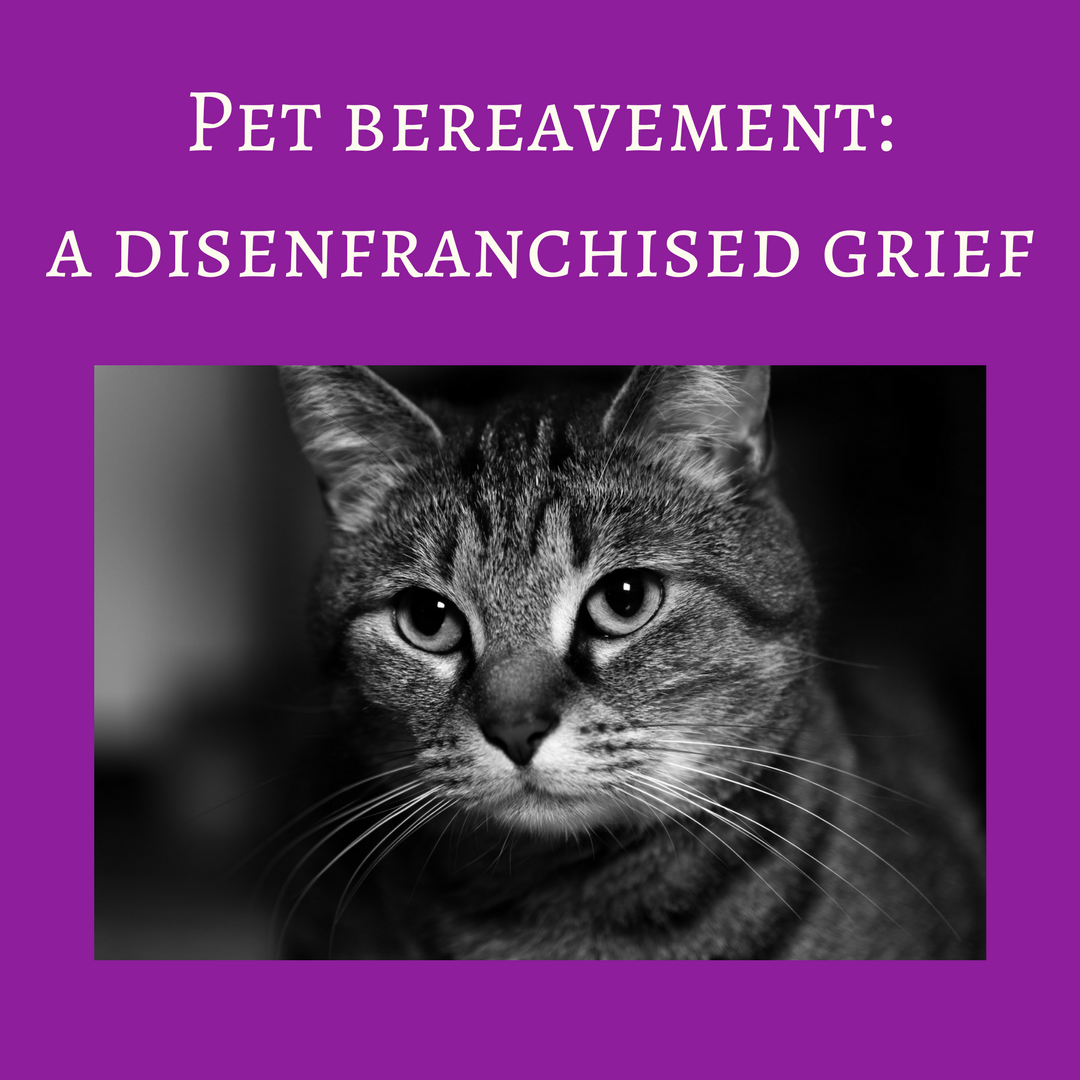|
A hidden sorrow: experiencing pet bereavement as a disenfranchised grief‘Disenfranchised grief’ is a term used to describe grief that isn’t fully or sometimes even partly acknowledged by society. There are several types of grief that fall into this category: the death of a friend, a miscarriage, giving up a child for adoption, and the death of an ex-spouse are just a few examples.
Pet loss is often experienced as a disenfranchised grief too.
An unseen painIf you’ve recently lost a precious pet, you may feel that your own grief is not being recognised in the way it would be if a human family member had passed away. Or if a loved one has recently lost a pet, they may be struggling with this hidden sorrow right now.
This can be incredibly upsetting.
Many pet carers feel isolated and unheard at a time when they need support to cope with their loss.
As we’ve talked about in past blogs, pet loss can have a huge impact on your routines including the friendships you’ve built up around your lost companion. The end of a pet’s life may be far-reaching in terms of how it changes your own life.
Pet carers can even feel disenfranchised within the animal-loving community. For example, people who’ve lost a young pet in traumatic circumstances can be unintentionally dismissive of the pain of losing a very old animal – “They had a long life and it was to be expected”. Or dog and cat lovers may struggle to understand someone who is grieving for a small pet such as their rabbit, hamster, snake or cockatiel.
It can be a difficult arena to navigate, especially as everyone brings their own experiences to the table!
The challenges of disenfranchised griefResearch has shown that disenfranchised grief often results in complications that aren’t present during other more socially recognised times of grief.
You may feel more depressed or angry because you don’t feel able or ‘allowed’ to express your emotions about your loss.
You may not have been through the rituals and ceremonies usually associated with a bereavement. Milestones such as funerals are built into the grieving process for emotional reasons, rather than just the practical ‘disposal’ (to use a brutal term) of the physical body, but we often skip them with animals.
The rituals and ceremonies we have around death are about acknowledging the importance of the life of the deceased. They’re a way of saying goodbye and remembering the being who will no longer have a physical presence in our lives.
Of course, this doesn’t guarantee closure but it is a way of telling the world that the deceased mattered. And that your relationship with the deceased was important to you.
People sometimes feel that they have to say goodbye to their pets alone and without the support of their wider community.
Knowing this, it makes sense that disenfranchised grief is sometimes described as ‘paradoxical’. It’s intensified because of the issues mentioned above and yet made smaller by society.
Coping with our own painIf you are reading this article because you have lost a beloved pet, there are steps you can take to help you go through this difficult journey, even if it feels like our wider society doesn’t recognise your loss.
 How we can help others deal with disenfranchised griefThere are steps we can take to support others during their time of grief and to model a better way for how society approaches pet loss.
Grieving serves multiple purposes. It lets us acknowledge the loss, express our emotions, adjust to a changed life, relocate the loss to a more manageable space in our minds, and adjust our philosophical beliefs. It is important to understand that grief doesn’t stick to a schedule and to be open-hearted about the highs and lows the bereaved may go through even years after their loss.
And always remind someone who is grieving that they are not alone.
|
